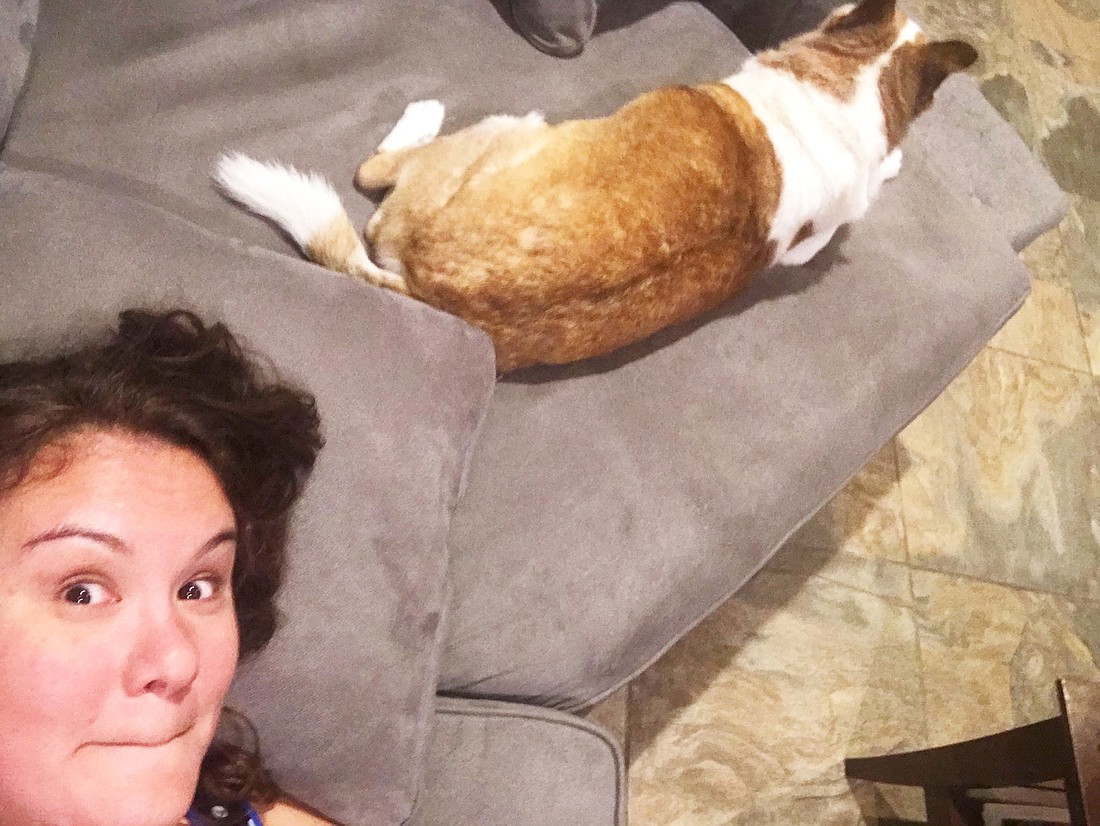
By Cyndy Trimmer, JBA board of governors
News and social media outlets exploded in August with public outcry when the Florida Department of Health sent letters to brewery and taproom operators warning that animals are prohibited indoors.
The letters read:
“It has come to the attention of the Florida Department of Health-Duval, some facilities are allowing animals inside the bar. Per Florida Administrative Code, 64E-11.008(8) Live birds and animals – No live birds or animals except for crustacea, shellfish and fish in aquariums shall be allowed in food service establishments, in vehicles used for transporting food or in any other area or facility used to conduct food service operations; except as provided under Section 413.08 F.S.”
Although bars under the jurisdiction of the Department of Health do not have traditional food service, 64E-11 defines food as any raw, uncooked, or processed edible substance, ice, beverage or ingredient used or intended for use in whole, or in part, for human consumption.
Animals may be present outside the bar, on a patio or similar area.
Much of the local awareness of the issue can be credited to Southern Swells Brewing Co., which posted a copy of the warning Aug. 16 and Green Room Brewing owner Mark Stillman, who started a petition at change.org.
As of Oct. 22, the petition “Allow Pets in Florida Breweries” had 33,485 signatures.
Despite the extensive coverage, there still is a perception that the crackdown is the result of a change in the law targeted at dogs in breweries.
Here are the answers to some of the questions I’ve heard since the news broke:
Where does the rule come from? When did the law change?
Pursuant to Section 381.0072(1)(a), Florida Statutes, the Florida Department of Health is charged with a duty “to adopt and enforce sanitation rules consistent with law to ensure the protection of the public from food-borne illness. These rules shall provide the standards and requirements for the storage, preparation, serving, or display of food in food service establishments as defined in this section.”
Section 64E-11.002 of the Florida Administrative Code has provided that defined terms are as detailed in the “Food Code” established by the United States Public Health Service, Food and Drug Administration.
It defines “food” to mean “a raw, cooked, or processed edible substance, ice, beverage, or ingredient used or intended for use or for sale in whole or in part for human consumption, or chewing gum.”
As quoted in the warning letter, the Florida definition of “food” tracks the definition established by the U.S. Public Health Service.
This has been the definition since the rule’s inception in 1998 and does not represent a change in the law. Due to its breadth, the definition means that a glass of beer qualifies as “food” even in breweries where traditional food service is not offered.
Who is enforcing this rule? Is there really a chance that a brewery could get caught?
The Department of Health’s deputy press secretary, Brad Dalton, has been quoted as saying that there is “no current push for enforcement.”
However, under Section 381.0072(3)(d), Florida Statutes, the Department of Health shall inspect each food service establishment as often as necessary to ensure compliance with applicable laws and rules. Agents are granted the right of entry and access at any reasonable time. There is no set schedule for inspections or limitation on the number of inspections that can be conducted.
Moreover, according to a representative from the Tallahassee code enforcement office, field inspectors are taught to look for signs that animals have been welcomed indoors, such as water bowls on the ground or dog hair in hard to reach places.
Even if an operator were lucky enough to avoid getting caught during a random inspection, code enforcement officials also may monitor social media and watch for pictures of dogs posted by unwitting taproom guests.
What’s the worst that can happen if dogs are allowed inside?
Pursuant to Section 381.0072, Florida Statutes, punishment for violation of food service regulations may include (i) imposition of fines against the establishment or operator, or (ii) suspension or revocation of the food service license after which time the establishment must remain closed.
The suspension or revocation period may last up to 12 months, after which time the establishment may apply for reinstatement or renewal of the license.
In short, a brewery risks losing its license and having to close its doors.
How do we change the law?
With regard to food safety, the state Legislature has delegated rule-making authority to the Department of Health.
Section 120.536 and 120.54, Florida Statutes, detail the steps required to create or amend a rule. The procedure includes several opportunities for public comment including a development workshop, a 21-day period for public comment and a final public hearing.
Of note, Section 120.54(7), Florida Statutes provides that any person who is regulated by an agency or who has a substantial interest in an agency’s rule may petition the agency to adopt, amend or repeal a rule.
And of course, as urged in the online petition, those interested may “contact your state legislator and encourage them to pass dog-friendly legislation so that people can continue to enjoy having their four-legged family members join them at their favorite brewery, winery, distillery or pub. Find you legislator at http://myfloridahouse.gov/Sections/Representatives/myrepresentative.aspx.”
Cyndy Trimmer is an associate with Driver, McAfee, Hawthorne & Diebenow PLLC focusing on land use and zoning including matters related to liquor licensing.